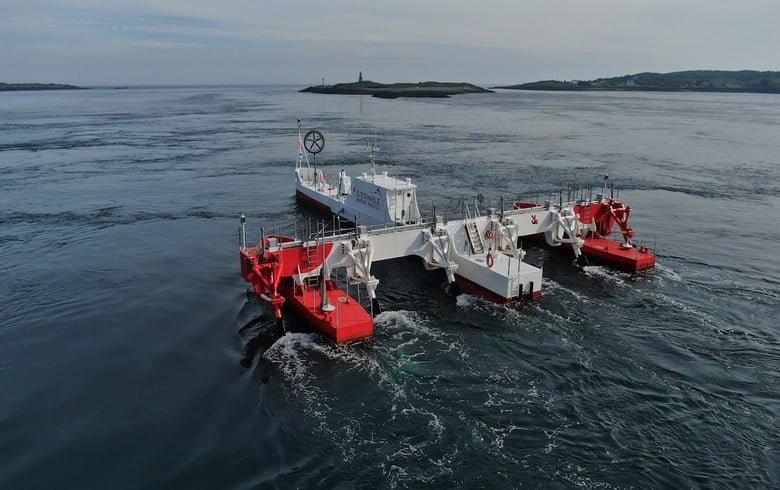The maritime industry is a vital part of the global economy, facilitating around 90% of international trade. It connects markets, supports international supply chains and enables the movement of goods on a massive scale.
However, with the growing demands of global trade and shipping, the health of our oceans is increasingly under threat. Pollution, habitat destruction and the spread of invasive species are just a few of the environmental challenges that stem from increased maritime activity.
To address these challenges, marine service companies are adopting innovative, sustainable solutions that not only maintain the efficiency and safety of maritime operations but also protect and preserve marine environments.
This article will explore the essential underwater services provided by these companies and the dual benefits of enhancing both environmental conservation and economic performance in the maritime industry.
What Are Underwater Marine Services?
Underwater marine services involve specialised maintenance and repair activities performed by highly trained professionals in the challenging and unpredictable ocean environment. These services are essential for ensuring the safety, efficiency and sustainability of maritime operations, covering everything from hull cleaning and propeller maintenance to structural inspections and emergency repairs.
Specialist companies use advanced equipment and techniques that allow for precise and effective work below the waterline, often eliminating the need for dry docking. By conducting maintenance while vessels remain in the water, it minimises operational downtime and reduces the secondary costs associated with halting maritime operations, making them a preferred choice for shipowners.
Key Underwater Marine Services and Their Role in Sustainability
With increasing awareness of ocean health and sustainability, many underwater marine service companies are adopting environmentally friendly practices and technologies in their operations. As a result, these specialist companies are becoming the go-to solution for shipowners who want to maintain their vessels responsibly, without compromising on operational efficiency.
Hull Cleaning
Over time, ship hulls naturally accumulate marine organisms such as algae, barnacles and molluscs, a process known as biofouling. This build-up increases drag, causing ships to consume more fuel and produce higher carbon emissions, raising operational costs. Additionally, biofouling can transport invasive species across different marine ecosystems, posing significant threats to local biodiversity.
Underwater marine service companies address these challenges with specialised hull cleaning. Using eco-friendly methods, such as soft brushes and low-pressure water jets, they effectively remove biofouling without damaging the hull or introducing harmful substances into the ocean. This process improves fuel efficiency, reduces the vessel’s environmental footprint and helps prevent the spread of invasive species, preserving marine biodiversity.
Underwater Inspections and Maintenance
Marine vessels and structures, such as offshore platforms and pipelines, face constant exposure to the harsh conditions of the ocean, which can lead to cracks, corrosion and other types of mechanical damage. If left unchecked, these issues can escalate into major problems, including oil spills or structural failures, which pose significant risks to both the environment and maritime safety.
Regular underwater inspections are essential for the early detection and prevention of such issues. Marine service companies use advanced technologies, including underwater drones, sonar imaging and high-resolution cameras, to conduct thorough inspections with minimal disruption to marine life. These proactive inspections allow for timely repairs, protecting both the marine environment while maintaining the operational integrity of maritime assets.
Propulsion System Maintenance
The propulsion and steering systems of a vessel, including propellers, rudders and thrusters, are essential for ensuring proper manoeuvrability and safety. Without regular maintenance, these systems can fail, leading to accidents or groundings that endanger those onboard and pose significant threats to sensitive marine environments. Additionally, poorly maintained propellers can generate excessive underwater noise and disrupt marine life, particularly whales and dolphins that rely on sound for communication and navigation.
Underwater marine service companies provide specialised maintenance for propulsion systems using non-invasive techniques that avoid the use of harmful chemicals. Regular propeller polishing and alignment help to reduce underwater noise and improve fuel efficiency, minimising the vessel’s environmental impact. These efforts ensure safer maritime operations and help prevent damage to marine life.
Ballast Water Management
Ballast water is essential for maintaining a ship’s stability, but it can also transport harmful aquatic species from one region to another. When released into new environments, these non-native organisms can disrupt local ecosystems, outcompeting native species and threatening marine biodiversity.
To mitigate this risk, underwater marine service companies employ advanced filtration systems, UV treatment and other eco-friendly methods to remove or neutralise invasive species from ballast water before it is discharged. These practices ensure compliance with international environmental regulations and help preserve marine biodiversity.
Emergency Response and Damage Control
Accidents such as collisions, groundings or oil spills can cause immediate and severe damage to marine environments, resulting in widespread pollution, loss of marine life and destruction of sensitive habitats like coral reefs and mangroves. A rapid response is essential to minimise environmental damage and support recovery efforts.
Underwater marine service companies, equipped with advanced technologies and highly trained personnel, are capable of performing quick and effective damage assessments and repairs. Their prompt intervention is vital for protecting maritime assets and reducing the environmental impact of such incidents.
Underwater Infrastructure and Habitat Restoration
Marine habitats like coral reefs and seagrass beds are essential for marine biodiversity, providing shelter, food and breeding grounds for countless marine species. However, these vital ecosystems are susceptible to damage from human activities, including shipping, construction and pollution.
Beyond maintenance and emergency response, some underwater marine service companies are actively involved in the restoration of these underwater habitats. Their efforts often include removing debris, replanting seagrasses and constructing artificial reefs to encourage the recovery of marine life. These restoration initiatives strengthen the resilience of marine ecosystems and contribute to broader conservation efforts, helping ocean life thrive despite the pressures of human activity.
Final Thoughts
The move towards sustainability in the maritime industry is more than just a trend; it’s a necessity. Underwater marine service companies are at the heart of this transformation, providing essential services that not only support the efficient operation of vessels and marine structures but also protect and conserve our oceans. By adopting sustainable practices, these companies show that it is possible to balance economic needs with environmental stewardship, ensuring a future where both the maritime industry and marine environments can thrive.






